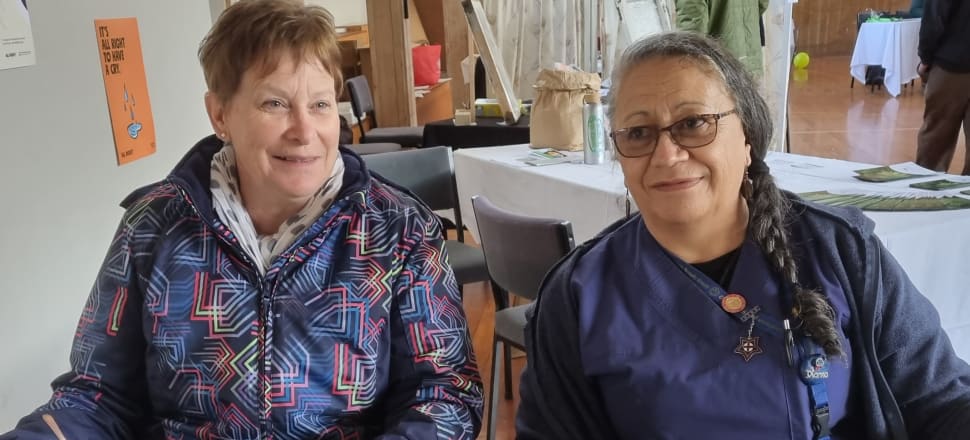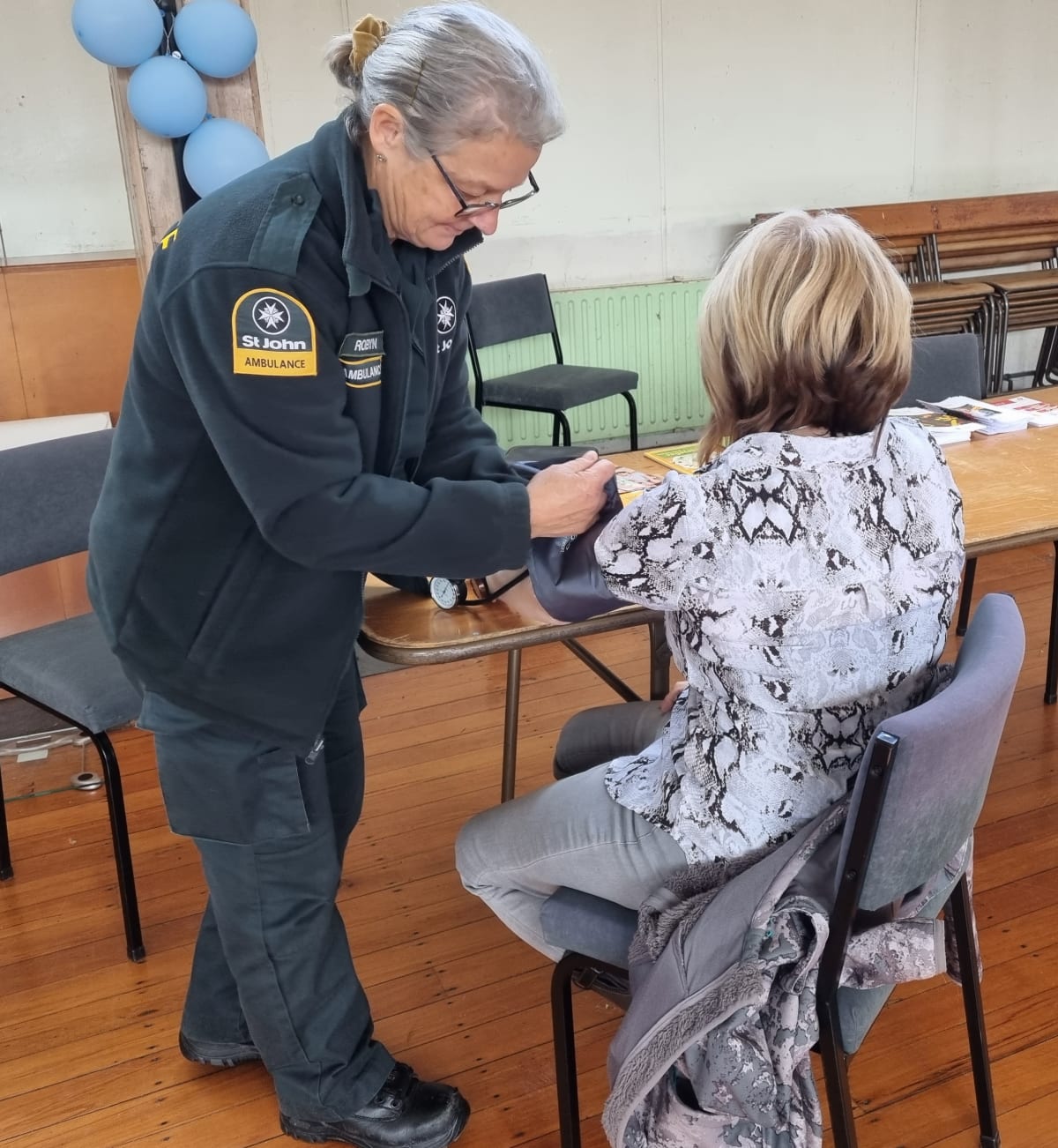
As mainstream health services struggle to meet demand, a Ngāi Tahu initiative on the South Island’s West Coast is seeing treatment offered to allcomers
Could it be the way of the future for small towns with dwindling services?
Health care provided by Māori organisations who take it to the people?
All people, that is - not just tangata whenua.
It’s an idea whose time has come, say the organisers of a novel “Wellness Day” in Reefton this month.
Poutini Waiora, a Ngāi Tahu health and social services provider that’s been supporting West Coast whānau for 21 years, reached out to the wider community last week with an expo-style multi-clinic in the town hall.
“Come and join us for a free health check,” the posters said.
And Reefton people - more used to losing health services than having them brought to their door - jumped at the chance.
“We had about 200 people turn up over the day - not bad for a town of 900. It shows there’s a real need out there,” says organiser Tess Hunter.
Hunter and her husband Tony Manuel, both veteran community workers, come across a fair bit of that need in Reefton on a daily basis.
“People have been through a really anxious time over the last year or so since Covid. We had no GP over winter because of the locum shortage so this was a way to say we care and we can help.”
The event corralled services from Māori and mainstream providers.
“The services are there but many are 80km away in Greymouth or Westport. And rural people may not even know they exist,” Hunter says.
On offer at the Reefton event were blood pressure and diabetes checks, asthma peak-flow tests, well-child checks, breast- and bowel-screening advice, green prescriptions, mental-health support and Covid or flu jabs.
Surprised locals were welcomed with non-clinical offerings including free hand-knits and activity packs for the kids. Sausages, hot drinks and soup were also available.
“One man drove his 90-year-old mum all the way from Maruia in the snow for her Covid booster. They were pretty rapt to get a cup of tea after that,” Hunter says.
The vaccinators ran out of booster shots, administering 30 jabs over the day, and the bowel-screening nurse gave advice to 10 people, a significant number for the small town.
“One young mum told me she broached a couple of things with the Tamariki Ora nurse that she hadn’t felt confident telling anyone, I think because she felt comfortable and welcome.”
Regular repeats
The plan now is to make Reefton Wellness Day a quarterly event, Hunter says.
In the past, Poutini Waiora has held such events at Arahura marae and in Hokitika to cater for the higher numbers of tangata whenua in those areas.
“Our first priority is Māori, but the wellbeing of the whole community is important”, says Poutini Waiora’s Westport team leader, Dianna McLean.
The organisation has contracts for services from community mental health to truancy and its staff are a mix of Māori and Pākehā.
“We don’t turn people away just because they’re not Māori. We have a percentage allowance for non-Māori in our budgets and mainstream services right now are chocka.”

Practising tikanga Māori means the teams start the day with karakia and clients’ needs come first, new experiences for staff previously employed in mainstream health, she says.
“Our new mental-health worker is from Finland. He asked me how long his appointments should be. We told him, ‘As long as it takes.’ He was blown away by that.”
Poutini Waiora administrator Joan Blacktopp says the success of the Reefton Wellness Day points to what’s missing in rural health services.
“It filled some real gaps. A lot of people avoid going to GP clinics. It’s all formal and they have to pay, so they’re less likely to go and get their blood pressure or diabetes monitored.”
The result, as one departing Greymouth surgeon observed, is that many West Coasters only turn to the health system in emergencies or with advanced disease that could have been caught by routine checks.
Bigger things beckon
The success of the Reefton Wellness Day now has some locals wondering if some bigger things might also be better managed with a tikanga Māori approach.
“The DHB closed our rest home and shipped our old people off to die far from home – now they’re coming back in wooden boxes,” says local businessman and health rep Ali Caddy.
“Nurses want to work here – we know that - but the DHB siphons them off for Greymouth or Hokitika because there’s a national nursing shortage. We’re just not their priority.”
Graeme Neylon, a former primary-health organisation member and Buller councillor, says under the health reforms, West Coast councils have been asked by the government to take the lead in consulting communities about what health services they need and who should provide them.
“Reefton and Westport and Karamea have all had a raw deal from the old Greymouth-based DHB system. But under this pilot scheme we have a chance at a fresh start, to structure things from the bottom up.
“It’s not like we’ll be getting a local surgeon or anything, but if organisations like Poutini Waiora are already doing the mahi we need and doing it well, we can say they should be funded to extend their services to places like Reefton.”
Coast councils are expected to start work on the health consultation in the near future, now the local elections are over, Neylon says.
Made with the support of the Public Interest Journalism Fund








